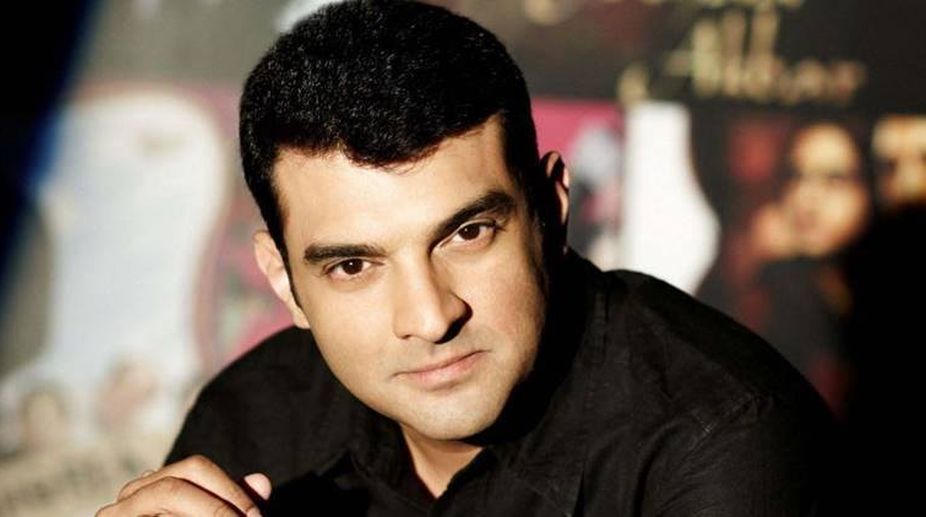The Goods and Services Tax (GST), implemented by the central government from mid-2017, has proved to be a strain on the overall economics of film-making and is also discouraging the public’s cinema-going habit, says Film and Television Producers Guild of India President Siddharth Roy Kapur.
The year 2017 threw up surprises at the Bollywood box office — with a dubbed film like Baahubali 2: The Conclusion creating a storm by minting Rs 500 crore-plus — and shockers too, with Shah Rukh Khan and Salman Khan’s Jab Harry Met Sejal and Tubelight, respectively, falling flat.
Advertisement
How did demonetisation, announced on November 8, 2016, and GST impact Bollywood’s business in 2017?
“It’s still early to say as far as GST goes, but it definitely is a strain on the overall economics of film-making because of the fact that there isn’t a complete pass-through for the set-off, due to differential tax rates at various stages of the value chain.
“Secondly, because of the tax of 28 per cent on cinema tickets above Rs 100, which comprises the bulk of the cinema tickets sold in the country, the cinema-going habit is being discouraged. This really does put a massive strain on the economics of film-making,” Kapur said in an email interview.
Tickets below Rs 100 attract GST of 18 per cent.
“We hope that the government recognises the contribution of Indian cinema… in driving the soft power of the nation, something which can actually propel us into the cultural fabric of the globe, and incentivises the industry accordingly,” he added.
Demonetisation, as part of which Rs 500 and Rs 1,000 notes were scrapped to counter black money, hasn’t impacted the film world much, says Kapur.
“This industry has been virtually free of cash dealings for over a decade now. So the film industry, contrary to popular notion, is one of the cleanest industries in the country. Demonetisation didn’t really affect us to that extent.
“At the box office, it had a temporary impact at the time that it was announced, but then we released Dangal within less than two months after demonetisation and it was the biggest Hindi film of all time till then. So, that goes to show that people still want to watch movies. We just need to make it easier for them to do so,” affirmed Kapur, the former head honcho of Studios, Disney UTV.
As a producer who is now making movies under his banner Roy Kapur Films (RKF), he finds the Hindi-dubbed version of southern fantasy drama Baahubali has been a game-changer.
There has been a slump in profitable Bollywood originals and the answer, Kapur said, lies in “better stories and better scripts”. “We really need to be able to focus on great writing. From great writing will come great movies.”
What about the fate of films that ride on star power?
“Star power is something that has always existed and will continue to exist, but the fact is that no star can guarantee a long run for a film.
“If the star is in a film that the audiences are not used to watching them in, the opening might be lower, but ironically that film might go on to do even better business if the film is good. Correspondingly, if the star is in a typical film that stars are expected to be in, it might open huge; but if the film is not good it will finally peter out.
“So, stars can get you that guaranteed opening in genres that they are known and loved for, but they can’t ensure the longevity of the run of the film. That’s the magic of cinema.”
At RKF, Kapur is looking forward to producing a biopic on astronaut Rakesh Sharma, as well as Nitesh Tiwari’s next film based on the bestseller “How I Braved Anu Aunty and Co-Founded a Million Dollar Company”. There’s R.S. Prasanna’s next, which is currently in the writing stage, and a film based on the true story of Vijendra Singh Rathore — the heroic Alwar-based truck driver who found his wife after a 19-month-long search in the aftermath of the Uttarakhand flash floods.
Kapur is also backing director Vinil Mathew and writer Sudip Sharma’s next dramatic thriller inspired by the true story of merchant navy officer Audumbar Bhoi, whose ship and crew were attacked by Somalian pirates.
Apart from producing films, RKF will also venture into digital media via a partnership with Reliance Jio to produce original video content, including digital series and Made-for-Jio films for the platform’s subscribers across India.
“We look forward to how the digital medium interfaces with the creative community and what emerges from that because it’s a very exciting time for content creators.”











